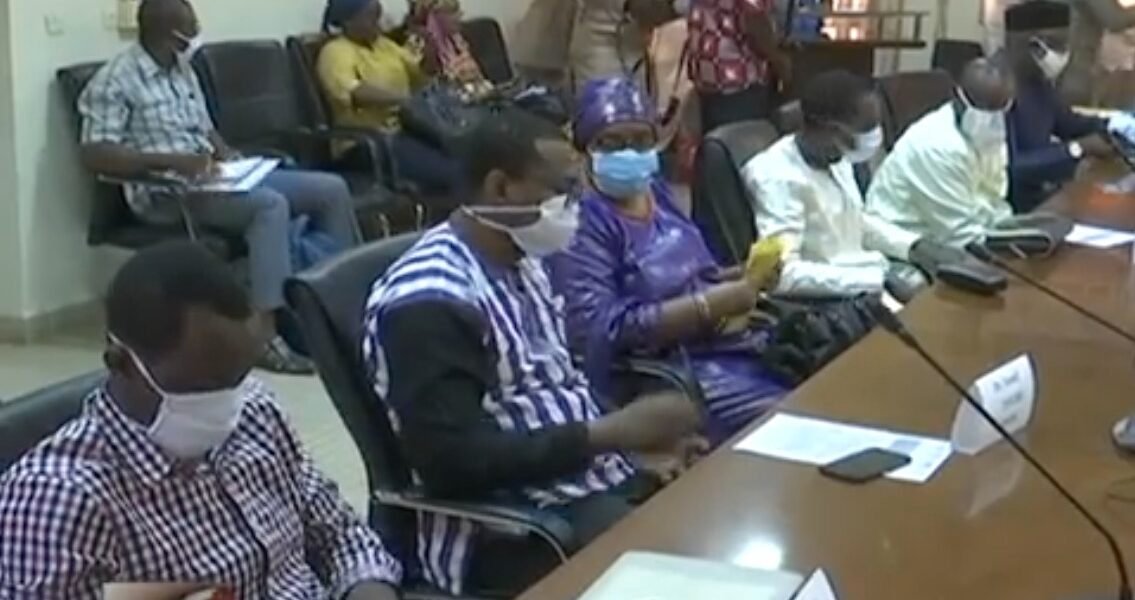Tag: Esclavage et Migration Forcée
The “CNDH” of Mali posts on Facebook the delivery of the certificate of acknowledgement by the SlaFMig coordinators (July 2021)
The coordinators of the Research Action Programme “Slavery and Forced Migration in Kayes” award a certificate of recognition to the CNDH (National Commission for Human Rights in Mali). The coordinators of the Action-Research Programme “Slavery and Forced Migration in Kayes” from the School of Oriental and African Studies (SOAS) in London, the Laboratoire d’Etudes et de Recherches en Droit, Decentralisation
Anti-slavery movements in West Africa, by Leah Durst-Lee and Nolwenn Marconnet (July 2021)
by Leah Durst-Lee and Nolwenn Marconnet To discuss anti-slavery movements in West Africa, we must first discuss against what they are resisting. Around the world slavery has been legally abolished, but yet it is estimated that globally there are more people living in forms of slavery than ever before, and in Mali at least 200,000 people are subject to exploitative
Counting the Victims: Part 1 – The difficulty in quantifying victims of descent-based slavery, by Leah Durst-Lee (July 2021)
Since 2018, at least 3,000 people have been displaced due to slavery-related violence in the Kayes region of Mali. But to receive the help victims deserve, a better count of how many people have been displaced is needed. This will help activists, researchers and policymakers to develop durable solutions for those in need. However it is difficult to get a
Newsletter #4, Introduction
Cher.e.s lecteur.rice.s, Nous vous présentons ici notre quatrième bulletin d’information, avec un autre éventail bien rempli d’activités et de nouvelles. Une étape importante de notre projet a été la formation sur l’esclavage fondé sur l’ascendance pour le personnel judiciaire et administratif dans l’Ouest du Mali, qui a eu lieu à Bamako du 28 juin au 2 juillet 2021.La formation a
Photo gallery: the workshop in pictures (June 2021)
Take a look at the photo gallery by clicking on the picture, and get an idea of the studious but very pleasant atmosphere.
“Conference with Gambana activist Salif Kamara: “Contemporary Slavery, Forced Migration and Diasporic Activism in West Africa”
On May 10th, on France’s National Day of Remembrance of the Slave Trade, Slavery and its Abolition, the SlaFMig project team based in Copenhagen an online conference in partnership with the Centre for Advanced Migration Studies (AMIS), to hear and showcase the experience and the voice of Salif Kamara, vice-president of the Rassemblement Malien pour la Fraternité et le Progrès
“Under the Radar: Descent-based Slavery as a Form of Contemporary Slavery”, article in “The Republic”
MARIE RODET, BAKARY CAMARA, MARIE-CHRISTINE DELEIGNE AND LOTTE PELCKMANSJUNE 7, 2021JUNE/JULY 2021 Examining the links between descent-based slavery and contemporary slavery in West Africa helps us to find the missing link to understanding the conditions under which slavery and slavery-like practices keep persisting despite abolitions and international anti-slavery legislation. Descent-based slavery and its legacies continue to prevail in many West African communities. This form
Lancement de notre programme de recherche action Esclavage et Migration Forcée au Mali (juin 2020) (French only)
La journée de lancement de notre programme de recherche action EMiFo sur le journal bamanankan de l’ORTM, bravo à tous les participants ! #malisansesclaves Voir la vidéo ici. Le quotidien malien L’Essor couvre le lancement de notre programme de recherche action.
Atelier méthodologique de recherche (September 2020) (French only)
Un autre événement clé du projet “Esclavage et Migration Forcée” été réalisé à Bamako, au Mali le 22 septembre 2020. Un atelier de méthodologie de recherche productif et détaillé a été mené par le Dr Marie Rodet (SOAS University of London) en collaboration avec le Prof Bakary Camara (Faculté de droit de Bamako) et le Dr Lotte Pelckmans (Université de














Recent Comments